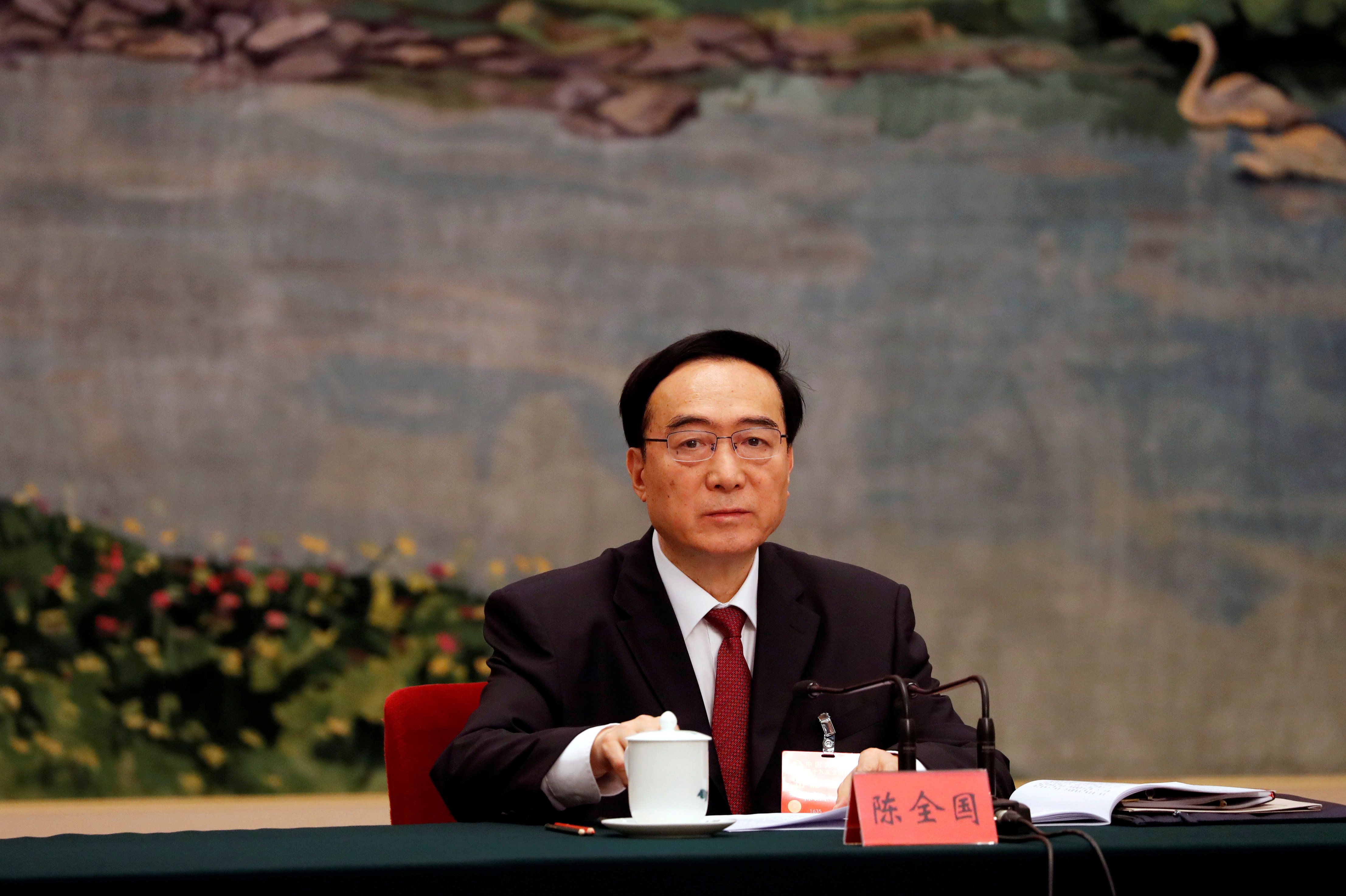October 26, 2018
The first thing to know about Chen Quanguo is that his political star is rising.
Last year, he became one of 25 members of China’s Politburo, arriving at this point in part thanks to his forceful leadership in Xinjiang province, a large region blessed with abundant natural wealth in China’s far west. It’s also an area inhabited by an estimated ten million Uighurs, a Turkic-speaking minority that makes up a large percentage of the country’s Muslim population.
This distinction has also earned him lots of new attention in Europe and the United States, where China’s critics accuse him of a crackdown that centers on “re-education camps” the United Nations says are used to imprison as many as one million Muslims.
Chen knew something about the mechanics of repression before arriving in Xinjiang. He has also served as Party Secretary, the highest provincial position, in Tibet, another region where Beijing has faced separatist pressures and ethnic unrest.
To enshrine “socialist civilization” in Buddhist Tibet, Chen reportedly…
- installed more than 100,000 Communist Party officials in Tibetan villages
- established party organizations in more than 1,700 Buddhist temples
- ordered temples to display images of senior party officials
- and multiplied the number of police on the streets.
In Xinjiang, the installation of civilization has become more systematized. It includes…
- sending Party officials to live in Uighur villages
- setting up a system of police checkpoints outfitted with cameras and facial-recognition software
- closing mosques
- training police in state-of-the-art crowd-control techniques
- and setting up the above-mentioned camps.
Chen is the only person ever to govern in both Tibet and Xinjiang.
The critical question: Is Chen’s political career on the rise because senior officials in Beijing want to reward his willingness to take on the country’s ugliest political jobs? Or because they consider him an innovator in techniques that might one day be employed on a broader national scale?
More For You
America’s new National Security Strategy confirms what Europeans have feared for months: Washington now sees a strong, unified European Union as a problem to be solved, not an ally to be supported.
Most Popular
Sponsored posts
The power of sports
What's Good Wednesdays
What’s Good Wednesdays™, December 10, 2025
Walmart sponsored posts
Walmart's $350 billion commitment to American jobs
In this episode of Tools and Weapons, Microsoft Vice Chair and President Brad Smith sits down with Ed Policy, President and CEO of the Green Bay Packers, to discuss how purpose-driven leadership and innovation are shaping the future of one of the world’s most iconic sports franchises. Ed shares how technology and community-focused initiatives, from Titletown Tech to health and safety innovations on the field, are transforming not just the game of football, but the economy and culture of Green Bay itself. He explains how combining strategic vision with investment in local startups is keeping talent in the Midwest and creating opportunities that extend far beyond Lambeau Field.
Subscribe and find new episodes monthly, wherever you listen to podcasts.
Members of security forces stand guard outside a polliong station, a week late in a special election, after the local governing party kept voting closed on election day, amid accusations of sabotage and fraud, in a presidential race still too close to call as counting continues, in San Antonio de Flores, Honduras, December 7, 2025.
REUTERS/Leonel Estrada
More than a week after Hondurans cast their ballots in a presidential election, the country is still stuck in a potentially-dangerous post-election fog.
© 2025 GZERO Media. All Rights Reserved | A Eurasia Group media company.
